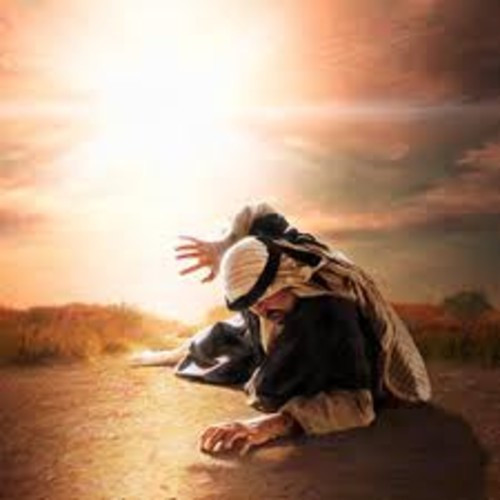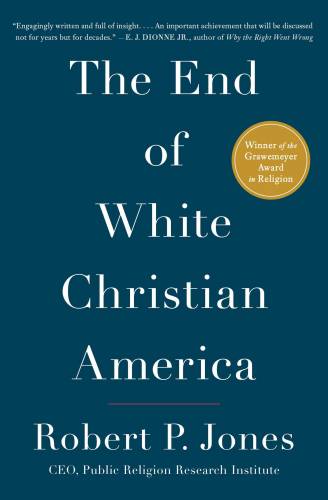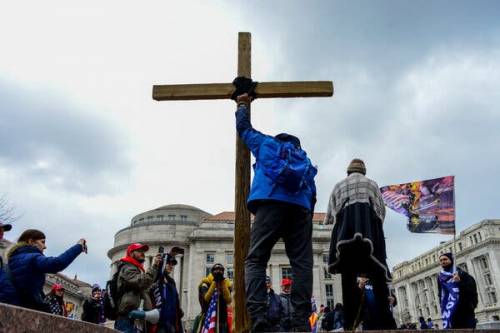Why Church?
By Samuel Son

Why?! It’s my children’s favorite word. And I have three of them! They love asking “Why?”
Why is the sky blue? Why do we go to church on Sundays? Why do I have to play piano?
At first, I thought, I’ve got philosophers! So, I answered their questions with great patience. Because when I was a kid and I asked my father, “why?” he always had the same answer, “Because I told you so!”
I swore that when I became a father, I would answer every one of my children’s questions. That promise didn’t last too long. I figured out that when they ask “why” they are not interested in the deep purpose of things. They want to tire you out until you forget what you told them to do in the first place.
-Ian practice your piano!
-Why?!
-Because no piano, no games!
I’ve stopped explaining. I’ve reverted to threats. But threats are weak motivations. Threats have a short shelf life. If my son comes to see the true “why” of piano himself, that music, as Mendelsohn said, “is more precise than language in expressing emotions,” then I would have to drag him away from his piano practice. No organization, movement, or changes can be sustained without a clear understanding of purpose.
So, “Why church?” That can be a scary question, because there’s a chance we might find out we’ve been running in the wrong direction.
Paul, was furiously persecuting Christians with conviction he was doing God’s work. In mid-stride of that unwavering determination, he got knocked down by light and Jesus asked, “Why do you persecute me?” Paul was struck blind so he can see he was always blind.

That “why” question made him question everything he did, and that is scary! I mean, who wants to question his whole life? What organization wants to question its whole purpose?! We are afraid of “Why?”
Leslie Newbigin — a missionary and theologian who warned that the greatest missionary crisis is the Western civilization — was consulted by a church to aid in their revitalization. When he met the elders, the first question Newbigin asked was, “Why does this church exist?” The leaders looked at each other the way people look at each other when they are asked, “Anyone like to close in prayer?” Then an elder uncomfortable with the silence answered, “to help its members.” Newbigin replied, “If this church exists for its members then it should close its doors.”
Why should PCUSA continue to exist?
Protestant churches are declining. Even more a reason to ask, “Why should PC(USA) continue to exist?” My immediate answer: I have a job here, but that’s not a purpose. It’s fear. And fear can actually cause you to betray your purpose.
So we are back to our scary question, “Why should any of our church doors remain open?”
Robert P. Jones, president of Public Religion Research Institute (PRRI) and author of “The End of White Christianity in America” says 1950s were American Protestant’s glorious days. When we look back at our glory days — when Reinhold Niebuhr was consulted by the State Department and PC(USA) pastors’ sermons made the New York papers — surely, we can say, we knew our purpose and pursued it passionately.

But could it be, like Paul, that in our glorious days, we might’ve been running in the wrong direction? That with the mighty influence our Protestant Church wielded, we only justified the world’s social dysfunctions and discriminations?
When Paul looks back at his past under the searching light of the question “Why,” he realizes that everything he did, his formal studies and advancement in the Jewish society, all of that “was all skubalon compared to knowing Christ.” (Philippians 3.8)
Skubalon. My favorite Greek word. NRSV translates it “rubbish” which doesn’t quite express the colorfulness of the Greek word. Rubbish, sounds so British. Who speak like that? “Dear, can you throw away the rubbish?” The more accurate translation is what I call the French version. Shit.
It’s heart-attack-scary to admit that all the years of hard work were actually crap (I can’t keep saying the French word). All that running and I’ve been running in the opposite direction?!
But there is good news, turns out crap is a good fertilizer, when you bury it, when you are able to let go. Because in your hands, it just smells. Under the ground, it feeds the soil.
Because all those experiences, studies and zealotry that Paul calls “crap” made Paul, says NT Wright a New Testament historian, the first true theologian.
So, it’s scary but we must ask, “Why Church?”
When Paul understands the why of the Church, he’s ready to give everything, even his life. He says it this way.
In former generations this mystery was not made known to humankind, as it has now been revealed to his holy apostles and prophets by the Spirit: that is, the Gentiles have become fellow heirs, members of the same body, and sharers in the promise in Christ Jesus through the gospel. Of this gospel I have become a servant according to the gift of God’s grace that was given me by the working of his power. Although I am the very least of all the saints, this grace was given to me to bring to the Gentiles the news of the boundless riches of Christ, and to make everyone see what is the plan of the mystery hidden for ages in God who created all things; so that through the church the wisdom of God in its rich variety might now be made known to the rulers and authorities in the heavenly places. -Ephesians 3:5-10
The first thing to note in this passage, but really in the entirety of the letter, is that the purpose of the church is intimately and inseparably twined with the why of the cosmos. This is why Paul invokes God’s title as the creator in this section. Paul begins Ephesians with, “God chose us in Christ before the foundation of the world!” Cosmic language.
The story of the Church begins at Pentecost, yes, but that’s not the full back story. It begins before the beginning. Before creation.
The story of the Church begins at Pentecost, yes, but that’s not the full back story.
It begins before the beginning. Before creation.
In the gospels,
- Mark says the story of Jesus begins with Jesus’ action, his baptism by John.
- Matthew and Luke says, the story of Jesus begins with his birth.
- John says, the story of Jesus actually begins with creation. Because Jesus is the creator who has come to his own creation.
This is what Paul does in Ephesians. The story of the Church begins at Pentecost, yes, but that’s not the full back story. It begins before the beginning. Before creation.
The church is not God’s backup plan. It has always been God’s Eternal-Plan A.
This means that when we talk about renewing the church, it is not so we can restore our denomination to its glorious days. The stakes are higher! It is about the shalom of the world!
We need our churches to be vibrant: not so pastor sermons can take center stage again in the New York Times, but because the world needs to experience God’s shalom.
What is God’s purpose for Creation?
That all would find their shalom/wholeness in submission to the Loving Lordship of Christ; every being find their freedom in obedience to Christ. Submission to the Lordship of Christ is not about God the tyrant needing everyone to know their place.
Paul says:
God put this power to work in Christ when God raised Jesus from the dead and seated Jesus at God’s right hand in the heavenly places, far above all rule and authority and power and dominion, and above every name that is named, not only in this age but also in the age to come. – Ephesians 1:20-21
Christ’s Lordship judges human powers that turn idolatrous. Christ dismantles rules, authorities, and powers that create division, hierarchy, oppression, and keeps people away from God by pitting them against each other. When good things claim to be God-things, when the pride of one’s culture metastasizes into cultural and racial superiority, they are brought under the judgment of Christ’s Lordship.
When good things claim to be God-things
they are brought under the judgment of Christ’s Lordship.
In Ephesians, Paul has in mind the Temple when he talks about rules and authorities. He paints this scene in chapter two. Rules and authorities in the Temple have usurped God. Authorities made rules determining who is in and who is out; these man-made rules are materialized with stones, walls that divide people and impose values: farthest out is the court of Gentiles, then the court of Women, followed by the court of Israel, finally the court of Priest. There are those who deserve their first row seats to God; and there are those who are far and can never get to be God’s family.
Christ dismantled those walls of enmity. Made them useless because God is no longer bound to the “holy of holies.” Veil torn, God is not in the center. God is everywhere. The margins are holy places. “Near” and “far” are useless categories when God is no longer centralized. Christ breaks dominions, and now the two people formerly separated by walls are made into one new humanity, one family.
Christ demolished the walls of racism, sexism, genderism, classism, nationalism, and any other isms that demand ultimate loyalty through the expulsion of others.
Christ’s Lordship is about creating a new human family. God’s Kingdom is about creating a kin-dom of all people.
But everyone doesn’t recognize it yet. Not every power recognizes that their days are done. In fact, most powers are in open rebellion against this new God-gifted reality.
In Acts 19, some in Ephesus, feeling threatened by the diverse and inclusive community of the church, especially because it was impacting their industry of idols, their cash-cow, swell into a mob, swarm into their city’s temple — which was the great symbol of power of those days — and chant, “Great is Artemis, God of Ephesus.”
I don’t know. It sounds a lot like: “Make America Great!”
This is the time of “is and not yet.” This is the time of eschatological hope which means it’s real, but people refuse to recognize it. Jesus has been appointed Lord of all, but a lot of sore losers are shouting, “Fraud!” and spreading lies that they still rule. But eventually, “every knee shall bow, and every tongue confess that Jesus Christ is Lord.”
—
“the most important contribution which the Church can make to a new social order is to be itself a new social order. More fundamental than any of the things which the Church can say or do is the reality of a new society which allows itself to be shaped by the Christian faith.” – Newbigin
But where creation hasn’t fully recognized this loving lordship of Christ, the church is where the one-family-reality-of-the-loving lordship of Christ is celebrated and lived out. Church is the first vision of the new humanity!
This is the why of the Church: To show the Cosmos the Shalom of God, by its life together.
Paul’s “elevator pitch” of the why of the church:
So that through the church the wisdom of God in its rich variety might now be made known to the rulers and authorities in the heavenly places. – Ephesians 3:10
Or as Newbigin puts it: “the most important contribution which the Church can make to a new social order is to be itself a new social order. More fundamental than any of the things which the Church can say or do is the reality of a new society which allows itself to be shaped by the Christian faith.”
The power of this world — the temples, halls of government, borders of nations — they have walls with signs that say: “Whites only,” “Males only,” “Americans only,” “Educated only,” “Rich only,” “Middle class only,” “English only.” And the church is to show what it means to live without those walls and signs. Yet, how many of our churches still have walls and signs. They might not be explicit, but they still hurt like a “ton of bricks.”
On January 6, there was an insurrection on Capitol Hill. Among the mob wanting to force their vision of America’s greatness were Christians carrying crosses, hugging bibles, and praying fervently.

Robert –the author of “The End of White Christianity” — writes, “American Christianity’s theological core has been thoroughly structured by an interest in protecting white supremacy.”
I wonder if we need a “why” moment? I wonder if Jesus isn’t saying to us right now, as he did to Paul, “Why do you persecute me?”
We look back at all we did and like Paul, we have to confess, a lot of it was skubalon, you know…rubbish or the French version of it.
We can’t hold onto them. We’ve got to let some things go (theology, practices, polity, liturgy, self-righteousness). They can’t be redeemed in our hands. But when buried, they can fertilize a new understanding of what it means to be the church, a church where Christ’s supremacy dismantles all false supremacies.
A Story
Kate Murphy was driving to Grove Presbyterian Church where she serves as a senior pastor when she saw a parked car with words painted on it. She pulled up for a closer look and saw anti-Muslim slurs. It was February 2016, shortly after President Trump issued his first executive order banning people from seven Muslim countries from entering the United States.
She talked to her church members with an idea. And together they decided to put up a sign that week. On W.T. Harris Blvd, they put a banner with big and colorful letters. “We love our Muslim neighbors.” When Kate came to Grove Presbyterian Church, it was a small, dying all-white congregation with the energy to give it one more try. They went through the presbytery consultations. Kate knew what needed to change. The congregation knew what needed to change. But they didn’t.
So, in one congregational meeting, Kate forced the issue. We are either ready to change everything, including our worship style, to become diverse because our neighbors are diverse, or I am out of here. They chose her and changed.
They’ve been practicing loving differences. So, these words were not difficult for them to say. And there were Muslim families who’d taken part in after-school activities at The Grove. When they heard anti-Muslim slurs, they thought about Muslim kids who played tag in their playground.
One Muslim woman took a picture of the banner when she saw it and posted it on Facebook. Another wrote about it on Reddit. Soon, the emails and mails began arriving in Kate’s inbox, from Charlotte but from all around the world.
One of those messages came from a mile down the road, at a place called the Charlotte Islamic Academy. A teacher had seen the sign and talked about it with her students. Some of them had seen the sign, too.
They sent cards to The Grove. Most were handmade, by students. One card said, “Thank you for standing up for us and supporting us, even when most of the world is against us.” Rose Hamid, an advocate for Muslims in Charlotte, read about the church sign in a friend’s post on Facebook. She went to The Grove’s website and found that on one Thursday evening a month, the church hosts a community dinner. She called to see if maybe the Muslim community could sponsor the next dinner.
The church secretary told her, that would be in April, that dinner happened to fall on the Christian holiday, Maundy Thursday. They were going to blend the community dinner and the Maundy Thursday service, scripture reading, and feet washing. Rose said they wanted to join. And the secretary said they were going to serve food served in Middle Eastern countries. Well, Rose Hamid said, that’s right up my alley because my brother just came back from Palestine with a jar of honey and figs.
They gathered for a simple meal, then they read the Gospel of John, then he poured water into a basin and began to wash the disciples’ feet and to wipe them with the towel that was tied around him. John 13.5
I did not get this story from Presbyterian News Service (which I love!) I got this from Charlotte Observer. This was not just a church story, this was world news!
Why church?
Because we are to show the world, what shalom looks like! Because we are to prove to the world, that shalom of God has begun!